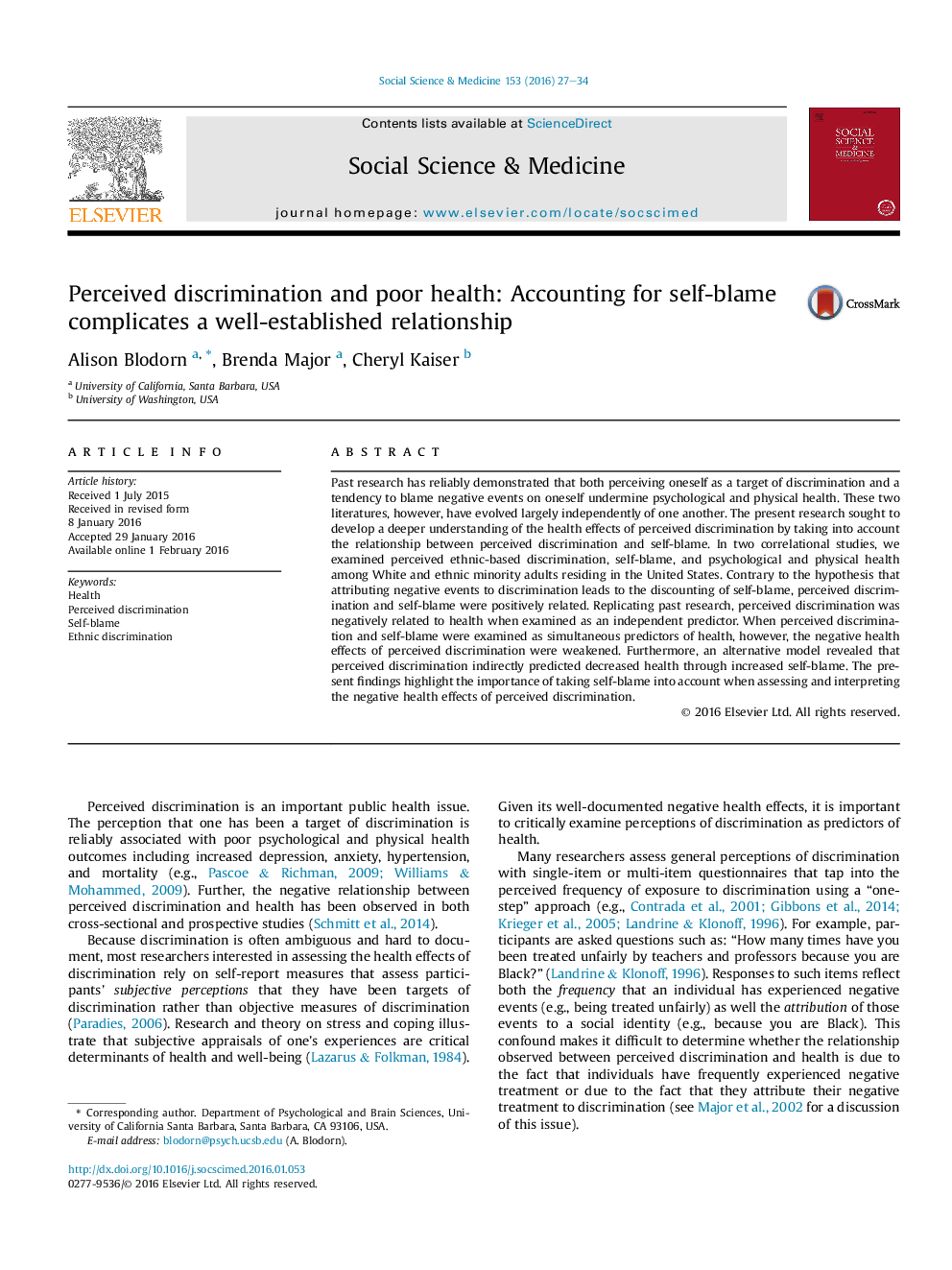| Article ID | Journal | Published Year | Pages | File Type |
|---|---|---|---|---|
| 7330435 | Social Science & Medicine | 2016 | 8 Pages |
Abstract
Past research has reliably demonstrated that both perceiving oneself as a target of discrimination and a tendency to blame negative events on oneself undermine psychological and physical health. These two literatures, however, have evolved largely independently of one another. The present research sought to develop a deeper understanding of the health effects of perceived discrimination by taking into account the relationship between perceived discrimination and self-blame. In two correlational studies, we examined perceived ethnic-based discrimination, self-blame, and psychological and physical health among White and ethnic minority adults residing in the United States. Contrary to the hypothesis that attributing negative events to discrimination leads to the discounting of self-blame, perceived discrimination and self-blame were positively related. Replicating past research, perceived discrimination was negatively related to health when examined as an independent predictor. When perceived discrimination and self-blame were examined as simultaneous predictors of health, however, the negative health effects of perceived discrimination were weakened. Furthermore, an alternative model revealed that perceived discrimination indirectly predicted decreased health through increased self-blame. The present findings highlight the importance of taking self-blame into account when assessing and interpreting the negative health effects of perceived discrimination.
Related Topics
Health Sciences
Medicine and Dentistry
Public Health and Health Policy
Authors
Alison Blodorn, Brenda Major, Cheryl Kaiser,
